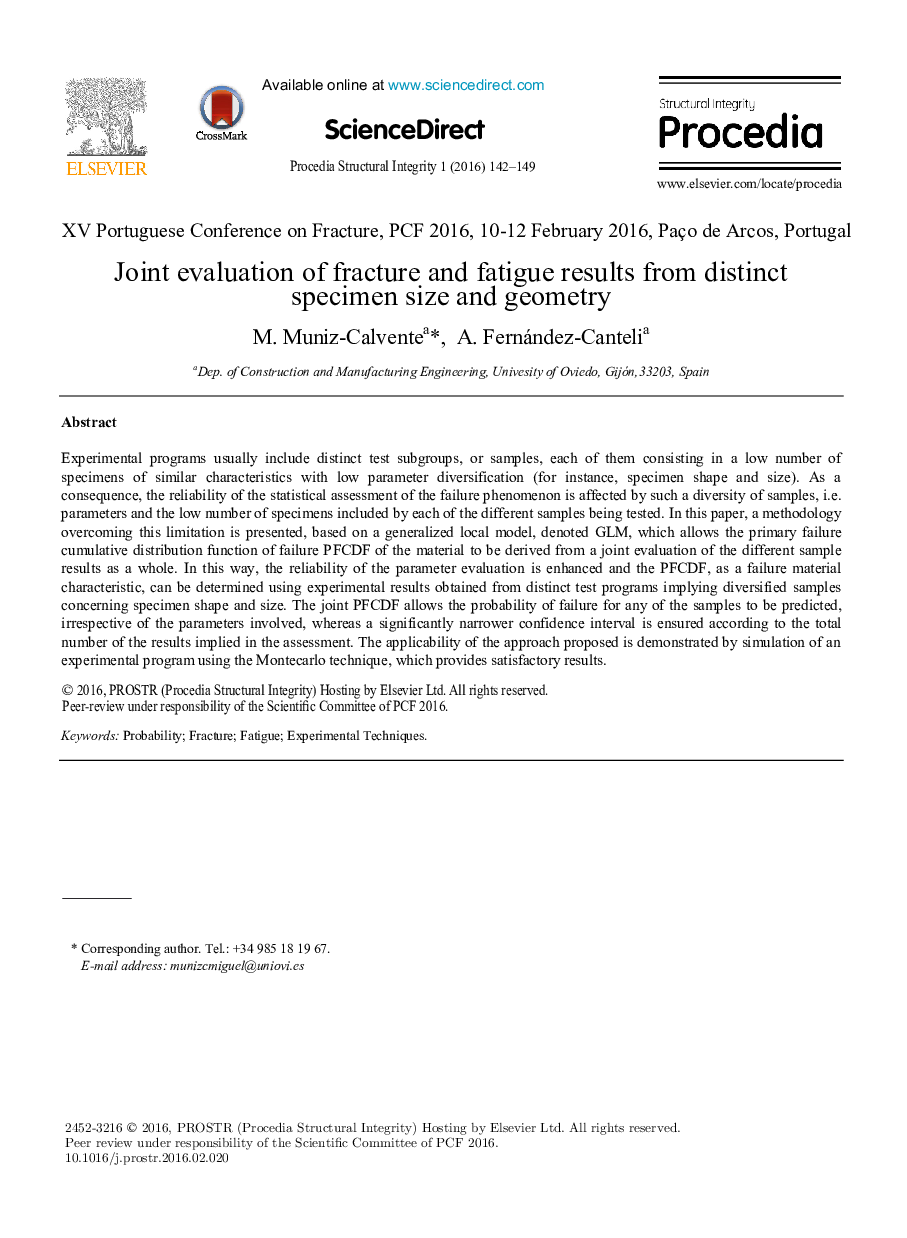| Article ID | Journal | Published Year | Pages | File Type |
|---|---|---|---|---|
| 1558763 | Procedia Structural Integrity | 2016 | 8 Pages |
Abstract
Experimental programs usually include distinct test subgroups, or samples, each of them consisting in a low number of specimens of similar characteristics with low parameter diversification (for instance, specimen shape and size). As a consequence, the reliability of the statistical assessment of the failure phenomenon is affected by such a diversity of samples, i.e. parameters and the low number of specimens included by each of the different samples being tested. In this paper, a methodology overcoming this limitation is presented, based on a generalized local model, denoted GLM, which allows the primary failure cumulative distribution function of failure PFCDF of the material to be derived from a joint evaluation of the different sample results as a whole. In this way, the reliability of the parameter evaluation is enhanced and the PFCDF, as a failure material characteristic, can be determined using experimental results obtained from distinct test programs implying diversified samples concerning specimen shape and size. The joint PFCDF allows the probability of failure for any of the samples to be predicted, irrespective of the parameters involved, whereas a significantly narrower confidence interval is ensured according to the total number of the results implied in the assessment. The applicability of the approach proposed is demonstrated by simulation of an experimental program using the Montecarlo technique, which provides satisfactory results.
Related Topics
Physical Sciences and Engineering
Materials Science
Materials Chemistry
Authors
M. Muniz-Calvente, A. Fernández-Canteli,
